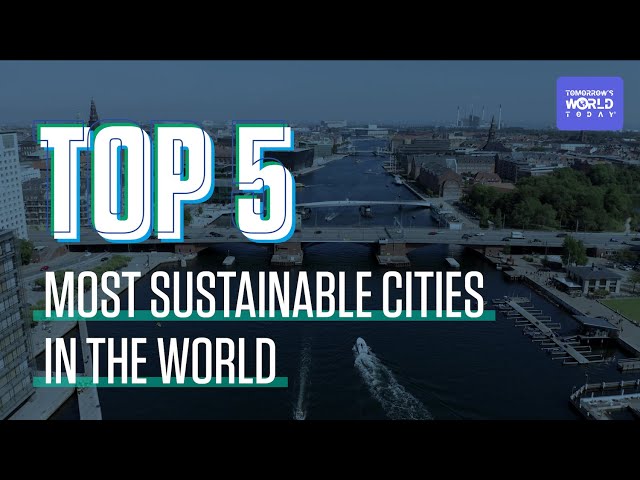Food waste is a significant challenge in the United States, with profound implications for both the environment and society. Each year, millions of tons of food are discarded, often unnecessarily, leading to a considerable waste of resources and contributing to environmental issues such as methane emissions from landfills.
In this context, the World Wildlife Fund (WWF) has embarked on an ambitious mission to halve U.S. food waste by 2030. This initiative is not only crucial for environmental sustainability but also for enhancing community welfare across the nation.
-
Understanding the Magnitude of Food Waste
-
Approximately 30-40% of the U.S. food supply is wasted.
-
This waste translates into economic losses and unnecessary environmental impacts, including the wastage of water, energy, and arable land.
-
-
The Importance of Tackling Food Waste
-
Addressing this issue is vital for reducing greenhouse gas emissions.
-
It also plays a crucial role in food security, making more food available without increasing production.
-
-
WWF's Role and Vision
-
The WWF is leading efforts to create systemic changes through innovative strategies and collaborations.
-
Their goal aligns with global environmental sustainability efforts and aims to inspire collective action.
-
For more insights into the scale of this challenge and the strategies proposed, check out WWF’s food waste initiatives. This resource offers a deeper understanding of the broad and impactful strategies being implemented.
To further explore how you can contribute to reducing food waste through practical everyday actions, consider reading about waste reduction on our blog. This is an excellent starting point for making individual changes that have a broader environmental impact.
Through innovative community engagement and policy advocacy, as well as individual efforts in households across the nation, we can significantly reduce food waste. By understanding the challenges and embracing the solutions available, everyone can contribute to a more sustainable and efficient food system.
Innovative Approaches to Minimizing Food Waste Across Various Sectors
Across the United States, various sectors are adopting innovative strategies to reduce food waste. These initiatives not only support environmental sustainability but also enhance operational efficiency and community welfare.
Educational Initiatives in Schools
-
Schools are at the forefront of instilling sustainable practices among young minds. Initiatives include:
-
Surplus Food Sharing: Schools distribute excess food through programs that ensure no child goes hungry.
-
Compost Programs: These programs teach students about the lifecycle of food and the importance of composting in waste reduction.
-
Technological Advancements in Grocery Retail
-
Grocery stores are leveraging cutting-edge technology to combat food waste:
-
Inventory Management Systems: These systems help stores order precisely what is needed, reducing the chances of overstocking and subsequent waste.
-
Dynamic Pricing Models: Reducing prices of products close to their expiration date to increase sales and decrease waste.
-
Culinary Innovations in Hotels
-
Hotels are redesigning their culinary operations to utilize more ingredients and reduce waste:
-
Menu Optimization: Chefs are crafting menus that use parts of ingredients typically discarded, enhancing flavor while minimizing waste.
-
Portion Control: Adjusting portion sizes to customer demand to avoid leftover food that ends up as waste.
-
Agricultural Technology Usage by Farmers
-
Farmers are adopting new agricultural technologies to ensure efficient crop sales and reduced waste:
-
Crop Monitoring Tools: These tools help farmers understand crop growth patterns, optimizing harvesting times and reducing spoilage.
-
Direct-to-Consumer Sales Platforms: By selling directly to consumers, farmers can reduce the food that spoils in transit traditionally seen in long supply chains.
-
Policy and Advocacy Efforts
-
Government bodies and nonprofits are crucial in framing policies that support food waste reduction:
-
Food Donation Policies: Encouraging laws that protect and incentivize businesses to donate rather than discard surplus food.
-
Waste Reduction Frameworks: Developing comprehensive strategies that encompass all levels of food production and consumption.
-
Proactive Household Practices
-
Individual actions at the household level play a significant role in reducing food waste:
-
Effective Meal Planning: Reducing purchases that exceed immediate needs.
-
Improved Storage Techniques: Extending the life of products and preventing spoilage.
-
The Global Impact and Collective Responsibility
The initiative to reduce food waste is not just a local or national issue but a global imperative. By cutting down on waste, we address both environmental challenges and issues related to global food security and sustainability.
-
Local Actions, Global Effects
-
Every bit of food saved contributes to a reduction in global greenhouse gas emissions and conserves water and energy.
-
The principles of sustainability and zero waste can inspire similar actions worldwide, influencing global environmental policies.
-
-
The Role of Each Individual
-
The collective impact of individual actions can lead to significant environmental benefits.
-
By adopting simple practices such as starting a home compost, households can contribute to a larger movement towards sustainability.
-
-
Joining Hands for a Sustainable Future
-
Through collaborative efforts and shared responsibilities, significant strides can be made in achieving the WWF's goal to halve U.S. food waste by 2030.
-
Engaging with community programs and supporting policies aimed at sustainability are crucial for long-term change.
-
Explore more about how individual and collective efforts are making a difference by checking out EPA’s food recovery strategies. Additionally, learn about the broader implications of waste and how you can make an impact with eco-friendly products for waste reduction on our website.
This comprehensive exploration into the multifaceted approaches to reducing food waste underscores the importance of innovation, technology, and community engagement in fostering a sustainable future.


















